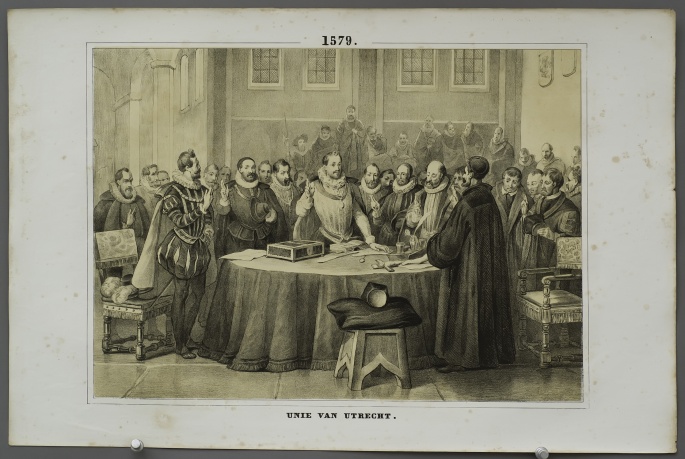The Union of Utrecht in 1579. Illustration by J.H. Eichman & H. Altmann, 1856
The Dutch Republic is born in 1579, when the northern states of the Low Countries rebel against the Spanish Habsburgs. The Dutch Republic becomes the vanguard of the early enlightenment thanks to its comparatively liberal attitudes to freedom of conscience and freedom of speech.
The Union of Utrecht from 1579 – the founding document and de facto constitution of the repubic – declares that:
“… each person shall remain free in his religion and that no one shall be investigated or persecuted because of his religion.”
– The Union of Utrecht, article 13, 1579
But in practice, the document allows the individual provinces to determine the degree of religious freedom they allow for their subjects. The Dutch Reformed Church enjoys a privileged position, Catholicism is officially banned and Lutherans, Mennonites, Anabaptists and Jews suffer various restrictions.
The Dutch Republic is more liberal with regards to censorship and freedom of speech. This liberalism results in a blossoming of print, some of the world’s first newspapers and the appearance of books that are banned everywhere else. René Descartes’ revolutionary Discours de la méthode is published anonymously in Leiden in 1637, and Spinoza’s Tractatus Theologico-Politicus is published anonymously in Amsterdam in 1670.
